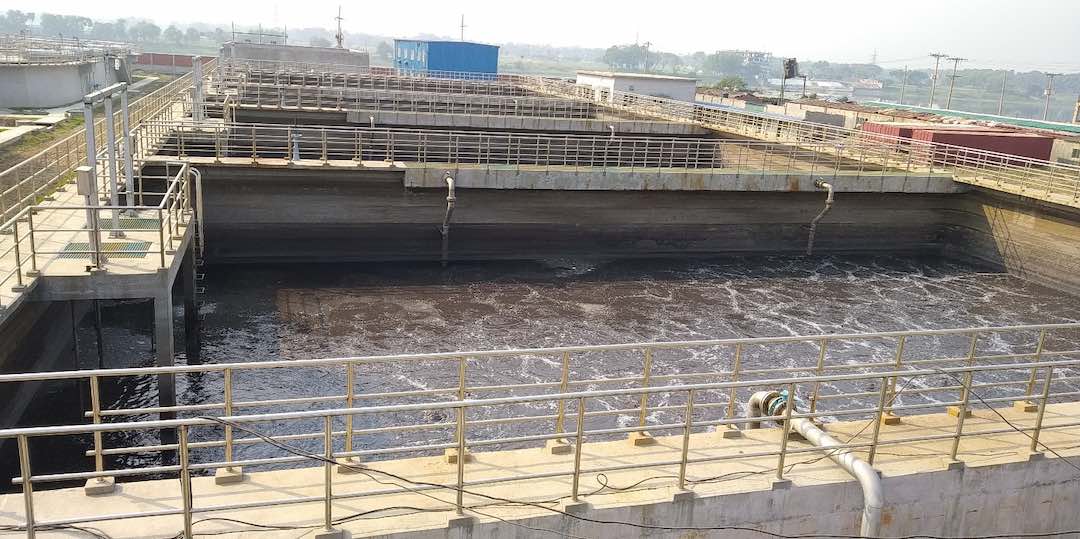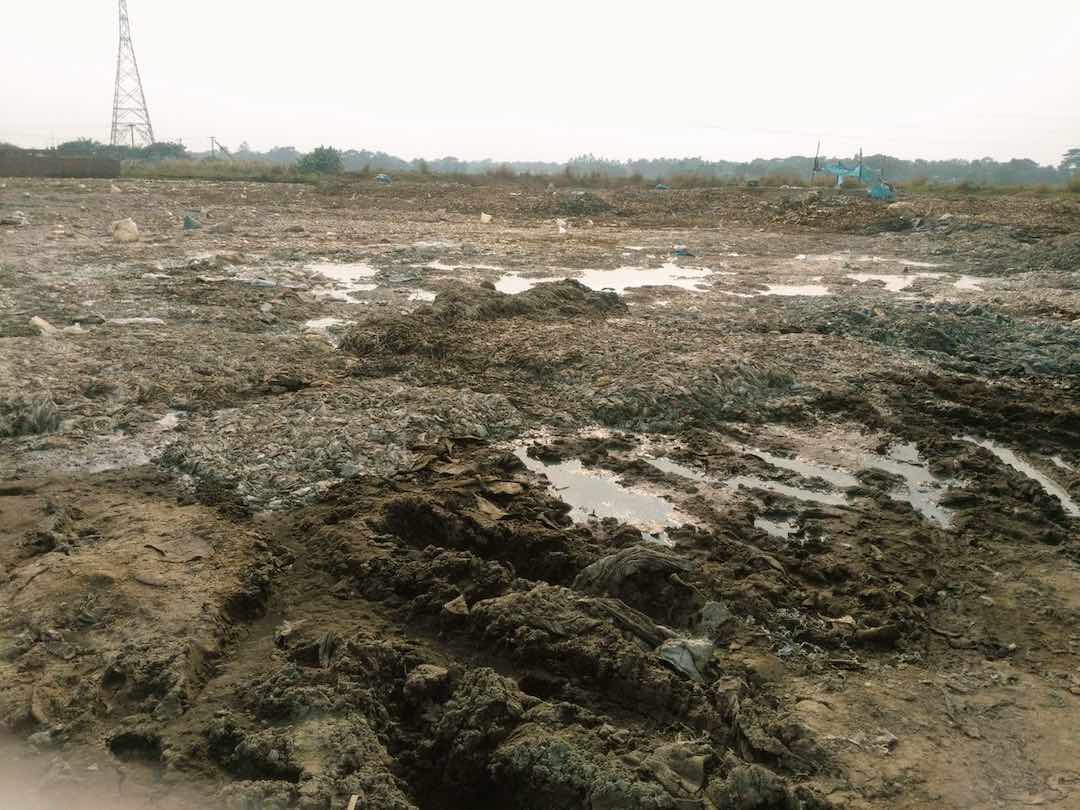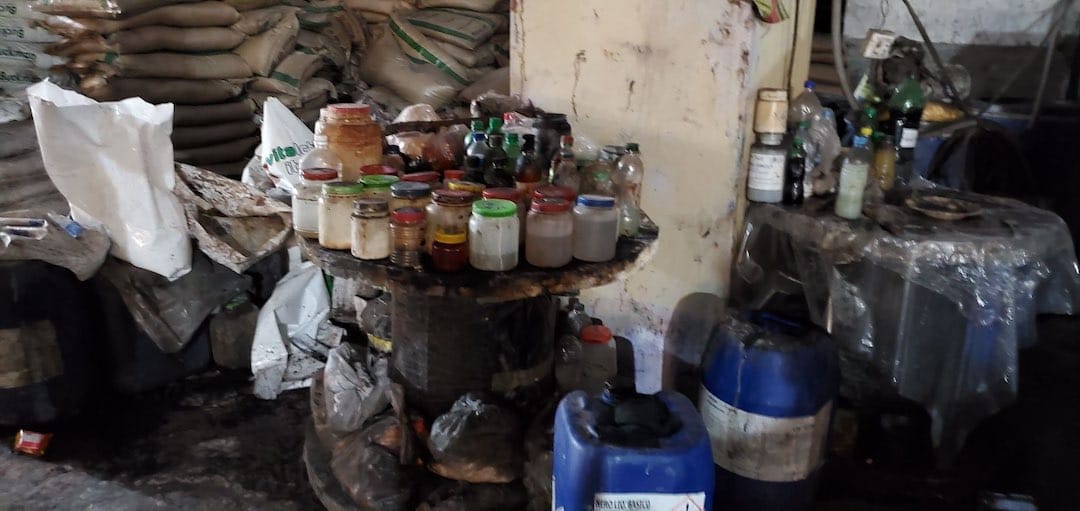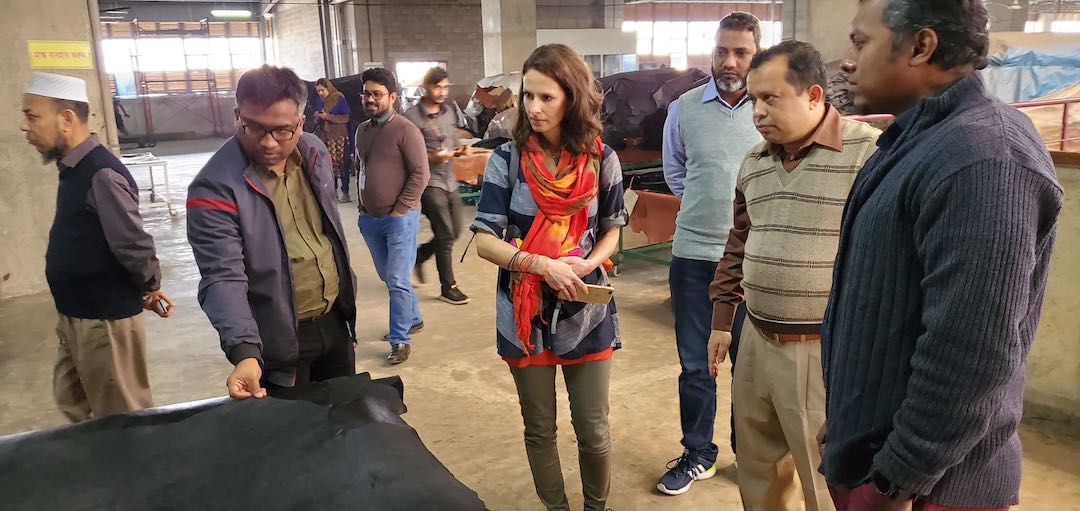The Asia Foundation
May 27, 2020
By Md. Sadat S. Shibli and Md. Taherul Islam
The leather sector is one of the oldest industries in Bangladesh, and tanneries are the dominant employer, accounting for 92 percent of all leather workers. As a source of national export earnings, leather is second only to ready-made garments, and Bangladesh leather exports account for 10 percent of world demand. But the industry has been troubled in recent years, especially the tannery subsector. Tanned leather exports fell from nearly $300 million in FY 2016 to less than $90 million today. There are several causes for this malaise—including poor marketing, an unskilled workforce, and lack of financing—but chief among them have been exploitive labor conditions and destructive environmental practices that have brought international criticism and sanctions.The Asia Foundation · The InAsia Podcast: Tannery Troubles in Bangladesh
For decades, pollution from tanneries at the main industrial site in Dhaka poured into the Buriganga River, wiping out aquatic life and forcing the city to rely heavily on groundwater for washing and drinking. But in 2017, culminating a government campaign that began in 2001, the tanners were forced to move their factories to the newly built Tannery Industrial Estate (TIE) located in Savar. Of the 220 factories at the Dhaka site, roughly 90 percent of all tanneries in the country, some 123 completed the move and are currently operating in Savar.
To prevent the dangerous pollution that occurred at the old Dhaka site and bring the industry into better compliance with customer environmental requirements, the new location includes a central effluent treatment plant (CETP), able to treat 30,000m3 of liquid effluents a day, and additional facilities for chrome recovery, water treatment, and sludge treatment. But some planned capabilities are not yet installed, and the CETP is not yet running at full efficiency, with the result that sludges are now dumped in an open yard, and untreated water is regularly dumped into the neighboring Dhaleshwari River, causing severe pollution.
The overloaded central effluent treatment plant at the new Tannery Industrial Estate in Savar, Bangladesh, 2020
In a series of interviews and group discussions conducted by The Asia Foundation, the local community complained that the Dhaleshwari River has become “unusable” and “toxic” since the tanneries arrived. They reported itching and other skin problems from the use of the river water. Farmers, who make up 75 percent of the people in the riverbank villages, can no longer use the river water for irrigation, and have had to install motor-driven tube wells, increasing their costs substantially. Village social life has also changed. Previously, people of all ages used to swim and bathe in the river and wash their cattle there.
Open dumping of toxic sludge at the Tannery Industrial Estate in Savar, Bangladesh, 2020
It was hoped that the tannery move would increase exports in the leather sector by bringing the industry into compliance with destination-market requirements, but the hasty, disorganized, and incomplete construction of the TIE appears to have thwarted this hope. For the workers, housing, transportation, and food are more expensive in Savar. Most workers are still temporary, with no benefits or allowances for their higher expenses. Most of them work without formal employment agreements, factory identity cards, or provisions for leaves of absence. Women receive no maternity leave.
Most workers lack personal protective equipment and must operate tools and machinery without adequate safety measures. Most tanneries, apart from a few larger ones, do not follow national or international standards for storing, transporting, or using harmful chemicals, and workers and supervisors commonly suffer from diseases of the skin and lungs, headaches, diarrhea, and fatigue. Some small and medium-size factories don’t provide pure drinking water or gender-sensitive washrooms.
Dangerous storage of toxic chemicals used in the leather tanning process at the Tannery Industrial Estate in Savar, Bangladesh, 2020
The Department of Inspection for Factories and Establishments (DIFE) is responsible for inspecting these factories and enforcing compliance with health and safety regulations, but with just two inspectors for the whole tannery estate, a lack of appropriate communications channels, and a general atmosphere of mistrust, the agency is finding it challenging to perform its oversight role.
Smaller tanneries and manufacturers struggle to get financial support from banks and other financial institutions. This sector has a huge concentration of small and medium enterprises (SMEs), and lack of financing for SMEs is a key constraint. In the wake of the Crescent Group scandal, banks have refused loans to tanneries, and because the TIE land has not yet been registered in the names of the manufacturers, they cannot use it as collateral for bank loans.
The Asia Foundation is now implementing a project, Promoting Decent Work and Acceptable Working Conditions in the Tannery Sector in Bangladesh, to introduce factory workers and supervisors to basic concepts of health and safety, waste management, and labor rights under the country’s legal framework. The Foundation is organizing a series of dialogues to discuss the problems and prospects of the tannery sector in a friendly, inclusive atmosphere as a neutral venue for industry actors, including the policy community.
Training for tannery workers at the Tannery Workers Union in Savar, Bangladesh, 2020
A total of 100 factory supervisors and 300 workers have already been trained on crucial social and environmental issues such as occupational health and safety law, chemical use and storage, basic labor rights, bargaining and negotiating skills, gender and sexual harassment, and managing solid and liquid wastes. These trained workers and supervisors go back to their factories and share what they’ve learned with colleagues by organizing a series of follow-up meetings. Now, in some factories, workers with support from their supervisors are negotiating with factory owners to develop some basic compliance standards. Some factories have started installing drinking-water stations, stocking first aid kits, reorganizing chemical storage, and introducing gender-sensitive washrooms.
As a consequence of these dialogues, the DIFE has strengthened its inspection mechanisms. The inspectors have recently introduced deadlines for some tanneries to provide the workers with contracts and identity cards. The project has established an effective communication channel among workers, union leaders, mid-level managers, and inspectors that is appreciated by the government, union leaders, and employers.
Visiting the Apex Tannery with Lauren Kurtz, a labor analyst with the U.S. Embassy in Dhaka, 2020
The Ministry of Industries and the Bangladesh Small and Cottage Industries Corporation (BSCIC) have stepped up to tackle some of the problems of the CETP. BSCIC has assigned more engineers to make the CETP fully functional, with a major focus on the chrome recovery unit. BSCIC has also launched an effort to secure land-registration papers for TIE tannery owners to help them with their financing. Other development partners are working with the business associations on sustainability reporting, human resources development, and developing a knowledge base of global markets and trends.
To boost leather exports to the United States and Europe, the industry must obtain certification from the Leather Working Group (LWG) demonstrating compliance with those markets’ labor and environmental standards. Standards compliance must be seen, therefore, as an integral part of Bangladesh’s national investment in the leather industry. To achieve this compliance, harmonious relations between workers and owners will also be required. Workers and owners need to recognize their common interest in obtaining LWG certification.
Sadat Shibli is director of general programs and Taherul Islam is a senior program officer for The Asia Foundation in Bangladesh. They can be reached at sadat.shibli@asiafoundation.org and taherul.islam@asiafoundation.org, respectively. The views and opinions expressed here are those of the authors, not those of The Asia Foundation.

I am making $165 associate degree hour functioning from home. i used to be shocked at a similar time as my Neighbor suggested Pine Tree State she become averaging $ninety 5 but I see the approach it works currently. I expertise lots freedom currently that i am my personal boss. that’s what I do……↓↓↓↓COPY THIS SITE↓↓↓↓
HERE☛………,….. https://best-financing-options-for-online.com/?id=587
●▬▬▬▬online JOBS▬▬▬▬▬●
My detail time work with facebook I am making over $2000 a month working low maint-enance. I endured h-earing one-of-a-kind people disclose to me how an awful lot cash they’re able to make online so I selected to research it. All matters considered, it modified into all valid and has genuinely modified my existence. For greater information go to below link
HERE☛www.gocash9.com